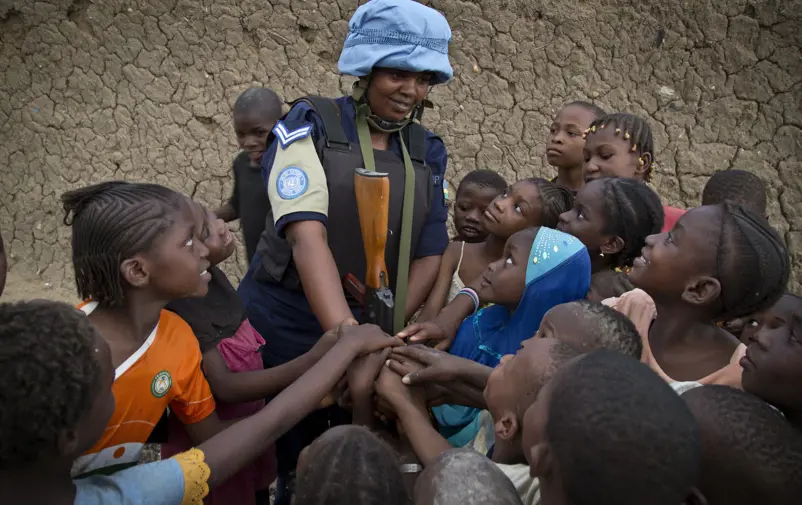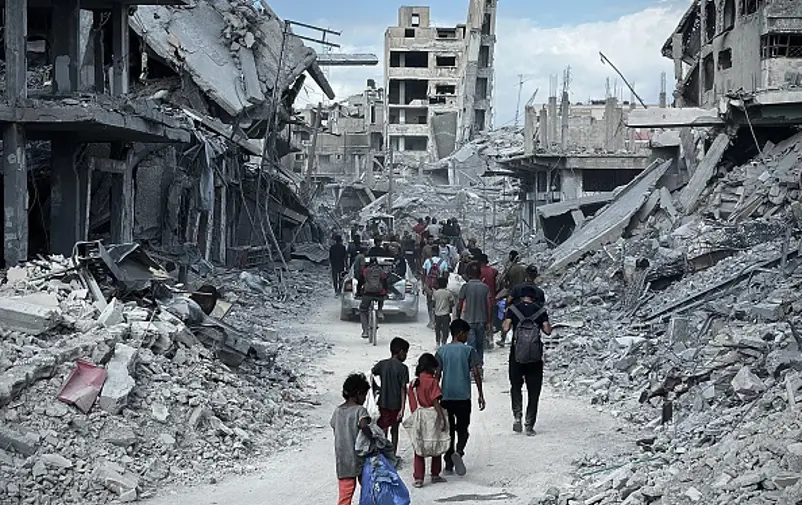International commitment important in conflict-affected Mali
Extremists, separatists and land disputes between farmers and cattle producers is part of everyday life in Mali. The situation is serious and considered a threat against international peace and security. FBA works to strengthen democracy, gender equality and human rights in the conflict-ridden country.Terror attacks take place almost every week in Mali. The population is often targeted, but hundreds of domestic soldiers and a couple of hundred soldiers from the United Nations Multidimensional Integrated Stabilization Mission in Mali, MINUSMA, that is present on the ground since 2013, have also been killed. And the peace agreement that was signed in 2015 has had little effect on the living conditions for the country’s around 18 million inhabitants.
Last autumn, Lieutenant Dennis Gyllensporre from the Swedish Armed Forces took over as Force Commander of UN’s military mission in Mali. The mission comprises around 12,000 militaries from over 50 countries, including more than 200 Swedes, and is considered as the most dangerous and perhaps most difficult mission ever for the UN. Dennis Gyllensporre describes the situation in Mali as follows:
– The security situation has deteriorated in the entire Sahel region over the past months, with an escalation of terror activities towards civilians and Mali’s security forces. But there are also positive signs. The national reconciliation process has taken important steps forward and the implementation of the peace agreement continues – although at a slow pace.
For a period of five years, the Mali National Institute of Statistics has asked approximately 15,000 households how they perceive their safety. FBA has financed the compilation of the report that was released in the autumn. The aim is to provide decision-makers with information so they can take appropriate measures to ameliorate the safety for people.
– Despite a spiral of violence after 2014 most people feel safe in everyday life. Fear mounts but not in the parts of the country where the security situation is the worst, says Minna Nauclér, Desk Officer at FBA who works with security sector reform where the police, the judiciary and the military are key actors.
As a result of the violence, the state lacks presence in large parts of Mali. Yet, people have reasonably confidence in the security forces. FBA’s work is based on the concept of human security, which is closely connected to human rights. Several factors have an impact on security, such as access to food. Due to the difficult security situation people cannot move freely, which prevents them from working on their fields and make a living.
So, how do the Malians look upon future?
– Only ten per cent of the adults think that violence will increase. But almost half of the population in conflict-affected areas don’t believe that the situation will improve in the short term. People are becoming impatient, still they get used to the circumstances and make the most of reality, says Minna Nauclér.
FBA strives to enhance women’s possibilities to participate in the ongoing peace and reconciliation processes in Mali.
– Generally, women have a weak position in Mali. Only one in four women can read and write compared to half of all men. Women also have limited representation in formal decision making, for example there are only 9.5 per cent women in the parliament and not more than 3 per cent women are part of the peace process, says Susanna Rudehill, who is specialized in issues regarding women, peace and security at FBA.
It is a challenge to pursue women’s rights in a country characterized by a patriarchal structure where extremists, islamists and other violent groups are active. But it would be a strategic mistake to exclude women from the work for sustainable peace.
– Women have power in the private sphere and can influence their brothers, husbands and sons to go to war, as well as to put down their weapons. This is why it is so important to involve them in conflict resolution. If male decision-makers understand the value of including women the situation might change, Susanna Rudehill says.
In addition, it is a question of justice – women have the right to shape their lives and their future. If only half of the population have a chance to give their opinion, whose needs and ideas will then be included in rebuilding society after the conflict, she asks rhetorically.
A gender perspective is also mainstreamed in the work of MINUSMA; from planning, throughout execution and evaluation of operations. According to the UN Security Council mandate, MINUSMA is assigned to protect women and children who are exposed to the conflict and encourage their involvement. For example, there are specific teams with female soldiers in order to strengthen dialogue with women locally.
Dennis Gyllensporre is convinced that the presence of international actors is needed to create stability.
– Our commitment in Mali is crucial. It will take a long time to solve the conflict and return to a normal situation, but we make a difference in daily life for many people here, he says.
Photo: UN Photo/Marco Dormino








 >
> >
>

